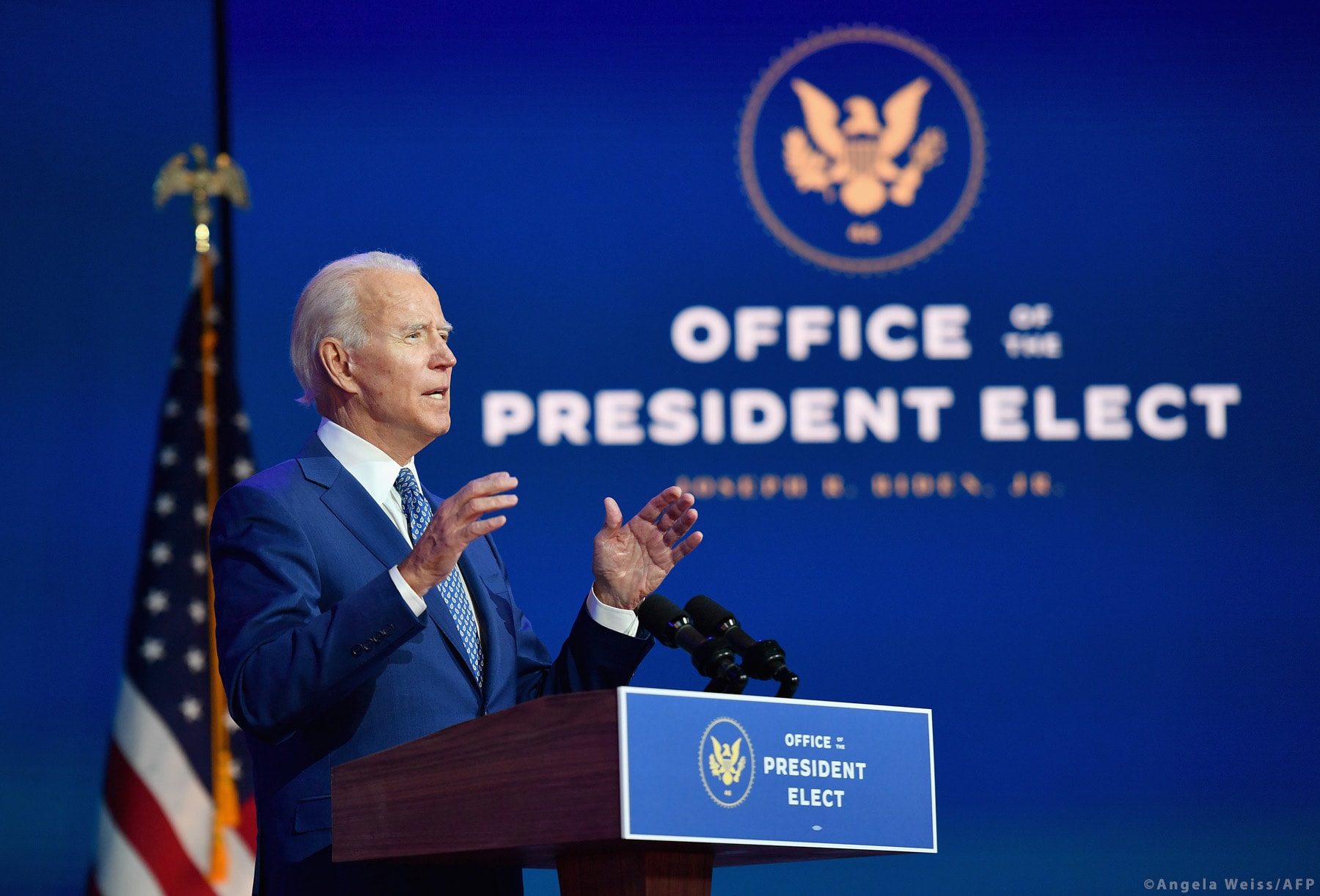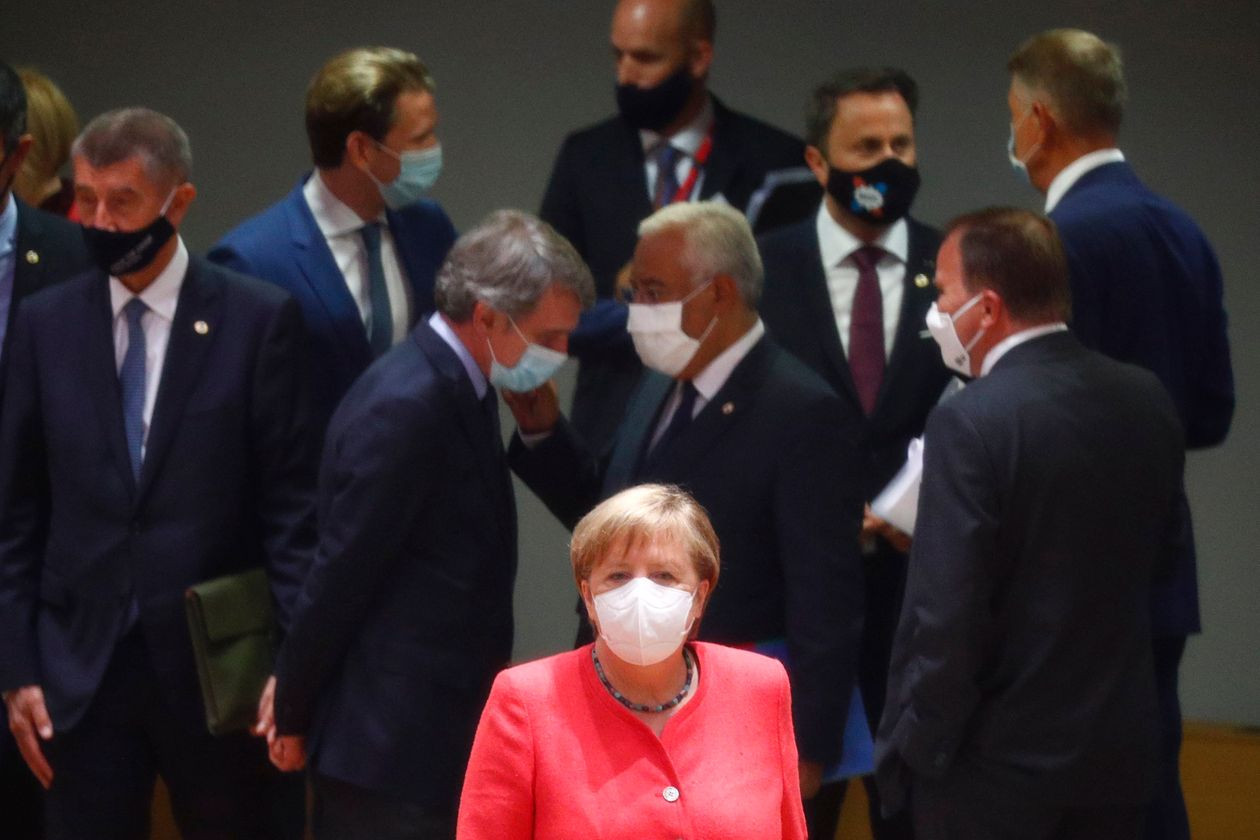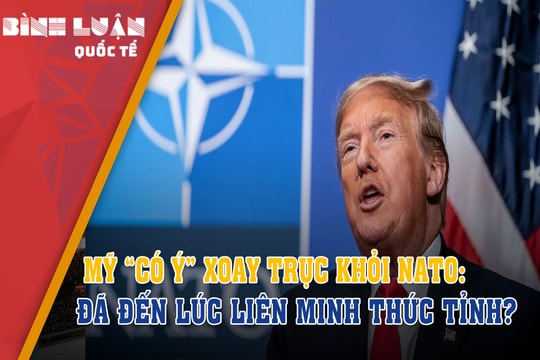US-Europe relations 'revive': New situations are established
(Baonghean.vn) - After four years of "rift" under President Donald Trump, the transatlantic alliance has begun to be "healed" in the early stages of President Joe Biden's administration. This new state is expected to promote closer cooperation in US alliance relations and create new situations for many "hot" international issues.
Healing from politics to economics
Among the US alliances under President Trump, European partners seem to have been the most “cold”. The past four years have been the “lowest” period for this alliance since the Cold War. And now, the new US administration is trying to fill the trust gap between the two sides.
Messages of “improving” or “reviving” the transatlantic relationship have been repeated many times in recent statements by US officials. Immediately after taking office, new President Biden had phone calls with leaders of countries around the world. The French President and the German Chancellor were the first names on this list, showing the new US administration’s respect for long-standing allies in Europe. This is also one of theforeign policy prioritiesthat Mr. Biden has pledged. In the phone calls, the new White House boss affirmed that he would see the US partnership with NATO and the EU as “a pillar of collective security and shared democratic values.”
 |
| Joe Biden becoming the new US President is an opportunity to reset transatlantic relations. Photo: AFP |
Then, on February 5, the Foreign Ministers of Germany, France, Britain and the United States held their first in-depth discussion afterthe new US administrationwas completed. Both sides expressed their desire to "revive the traditional, close transatlantic relationship" and jointly address future global challenges. This in-depth dialogue was described as trustworthy and constructive. In addition to bilateral issues, US Secretary of State Antony Blinken and his European counterparts discussed a "thorny" topic, the Iran nuclear deal, which has not been going smoothly since the US withdrew from the Joint Comprehensive Plan of Action (JCPOA) in 2018. After withdrawing from the deal, then US President Donald Trump re-imposed sanctions on Iran. In response, Tehran reduced some commitments in the deal and increased uranium enrichment levels. In recent times, European countries have tried to maintain this agreement, while expressing disagreement when the US unilaterally "turned its back". However, under the Biden administration, this issue seems to be easy to find common ground as the parties have shown a unified approach that can address common concerns on the Iran issue.
In addition to signs of "warming up" in politics and diplomacy, the new US administration is also considering improving relations with the EU in the economic field.
The latest statement from the White House said that President Biden will review tax policy towards the EU. Previously, the US decidedapply a tax rate of 25%on many European products, including wine and aircraft parts, took effect from January 12. The EU opposed the above measure and responded with punitive tariffs on $3.4 billion worth of imported goods from the US, targeting Harley-Davidson motorcycles, Levi Strauss jeans, and Whiskey.
European public opinion expects the upcoming phone call between European Commission (EC) President Ursula von der Leyen and Mr. Biden to have a breakthrough in the issue of tariffs between the two sides. If the tariffs are “frozen,” it will be the most substantial signal to “reset” the EU-US relationship.
 |
| European leaders at an EU summit in July 2020. Photo: WSJ |
US - Europe cooperation, will the world change?
In the current period, the EU and the US moving closer together will bring benefits to both sides, in line with the goals set by each government. For the US, up to this point, it can be affirmed that President Joe Biden advocates approaching and solving foreign affairs issues based on traditional alliances. Without European cooperation, President Biden will find it difficult to achieve ambitious goals in combating climate change, cooperating and fighting with Russia or other hot issues in the Middle East and Africa - places where the voices of EU countries have a certain weight.
For their part, European governments have probably clearly felt the “vacuum” when the US “turned its back” under Mr. Trump. Germany and France – countries promoting multilateralism – will certainly gain more “strength” from the new White House owner’s commitment to valuing multilateralism over isolationism.
In contextCovid-19 epidemicWith the impact and serious consequences on both sides of the Atlantic, if the economic relations between the US and Europe are improved, it is possible to "save" many economic sectors that are on the brink of collapse in the short term. Take the aviation industry for example. The 16-year dispute between the US and Europe over subsidies for domestic aerospace industries has endangered thousands of jobs on both sides. In addition, the recent US tariffs and the EU's response have further aggravated the situation. Therefore, this is the time when both sides are waiting for commitments to "freeze" the imposition of tariffs on each other.
 |
| French red wine is one of the products subject to a 25% US tariff effective January 12. Photo: AFP |
As for the world, the revival of the transatlantic relationship is expected to impact many world issues, from Iran to Asia. It is no coincidence that the Iranian nuclear issue became one of the focuses of the recent in-depth discussion between the foreign ministers of Germany, France, the UK and the US. The opportunity for the US to negotiate and return to the JCPOA agreement is closer than ever with the "green light" commitments from the Biden administration and somewhat conciliatory statements from the Iranian government. With such a situation, there will be many more discussions in the coming time between the US and its partners participating in the agreement in Europe to reach a common consensus on this issue.
Although geographically distant, Asia is an important region in the outreach strategies of the US, EU and UK. France and Germany have both outlined their Indo-Pacific vision strategies, while in 2020, the UK publicly announced plans to send warships to the region to work with its allies to deal with the rise of China. Recently, London also applied to join the Comprehensive and Progressive Agreement for Trans-Pacific Partnership (CPTPP) as a next step in this strategy. Clearly, the Asian region is becoming an increasingly vibrant area with the presence of many Western countries. In the future, the friction between major countries in the region will go in which direction, largely depending on the alliance between the US and the "Quad" group (including the US, Japan, Australia, India) and European allies.
With the view of working with allies to solve outstanding external issues, the “revival” of relations with Europe is very important to the Biden administration. This could be a basis for the US to “rearrange” many of the world’s records.

.jpg)

